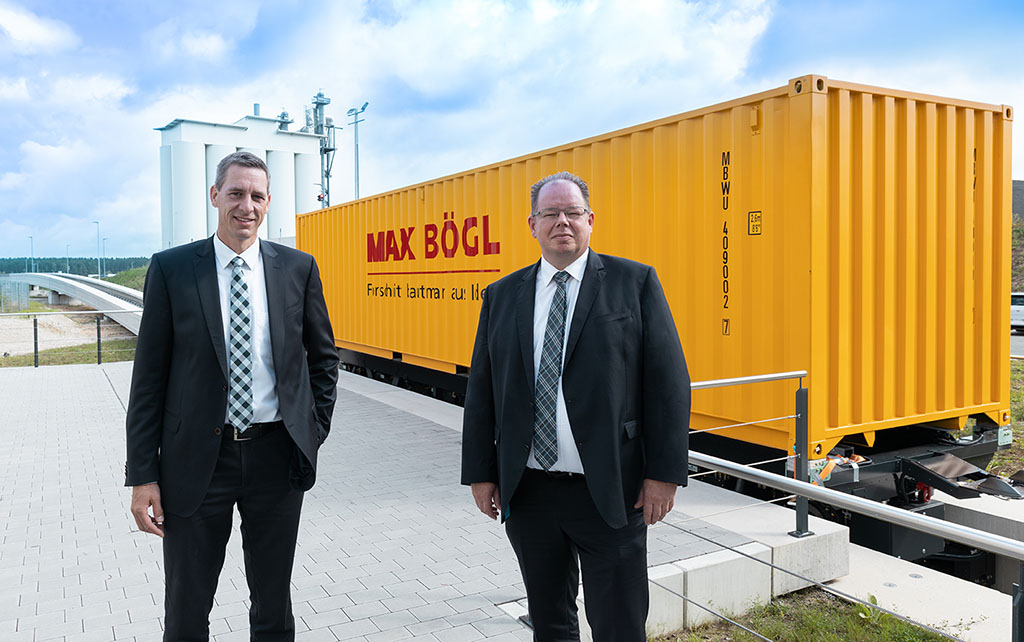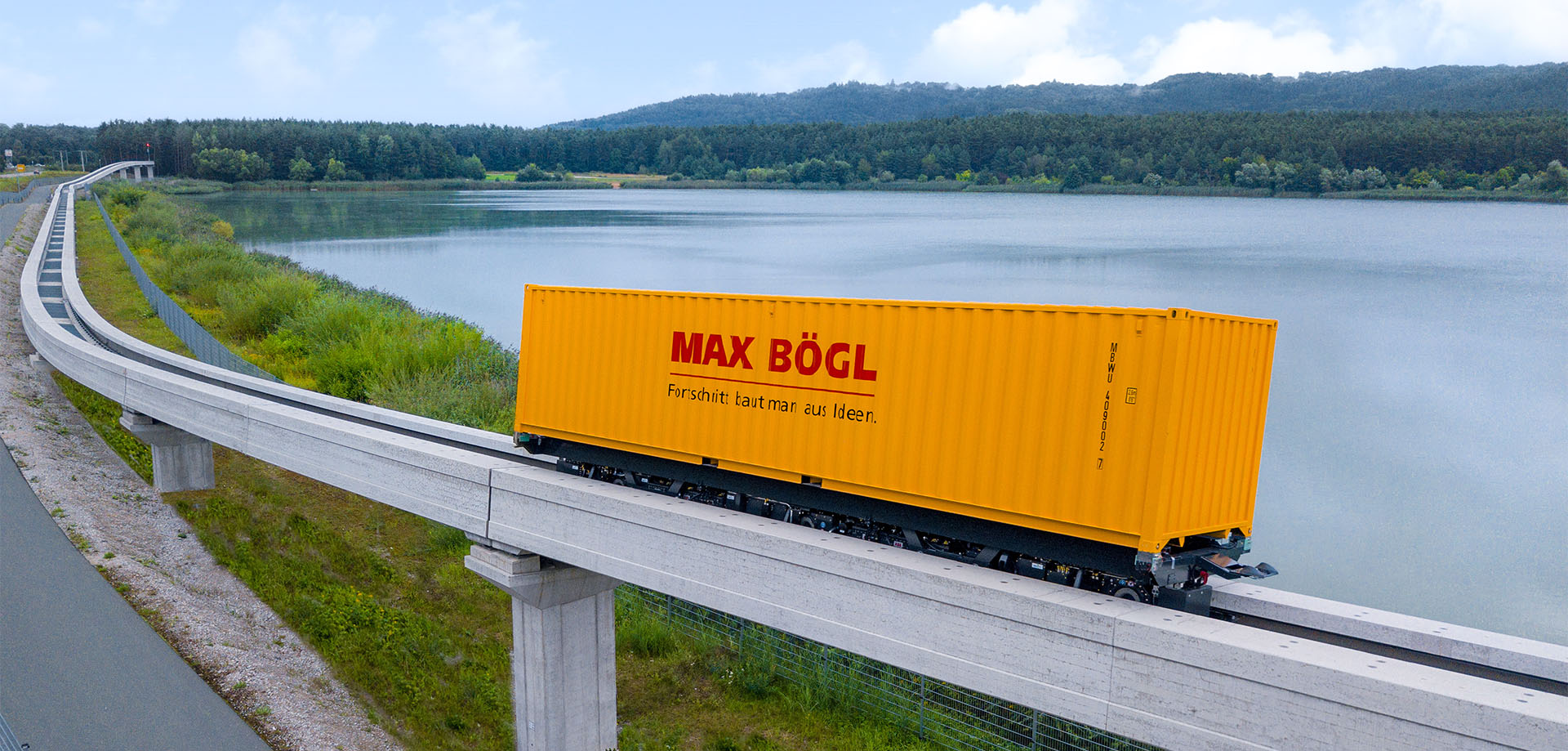TSB Cargo is gaining momentum
The TSB Cargo system has successfully launched operations on the 860-meter test track in Sengenthal. In addition to its use in local passenger transport, the exceptionally quiet and efficient magnetic levitation technology employed in the fully automated Transport System Bögl (TSB) also allows the system to serve as a space-saving and low-emission alternative to road-based freight transport. Operating in 20-second cycles and reaching speeds of up to 150 kilometers per hour, the system can move up to 180 containers an hour in one direction individually and fully electric.
Demonstration track under real-life conditions
A 120-meter demonstration track, including switch, is currently being built for this year’s ITS World Congress in Hamburg. Between October 11 and October 15, 2021, visitors can watch transfer operations from trucks to the TSB Cargo system and experience its low-noise operation on the Cruise Center Steinwerder site. In conjunction with a feasibility study that the Hamburg Port Authority (HPA) will have an independent office carry out together with Max Bögl, the demonstration track will form the basis for the technology’s real-life application in the logistics industry.

Climate-friendly container transport solution
Among the potential applications of the TSB Cargo system are the distribution of goods between busy logistic hubs, for instance port terminals or hinterland connections with so-called dry ports. With Diesel-fuelled trucks currently moving the lion’s share of individual container transport, the shift to a fully electrical system such as TSB Cargo will cut carbon volumes in the transport chain and relieve pressure on port infrastructure.
Maglev technology reduces strain on infrastructure
TSB technology involves an electromagnetic levitation system which reduces wear and tear on vehicles and infrastructure. As a consequence, both operating costs and fine particulate emissions are significantly lower than in conventional systems. Containers can be transported much more efficiently from both a business and an economic perspective. Based on initial analysis, potential savings may be as high as 50 percent of the current costs. Streamlined elevated tracks prevent land fragmentation and are suitable for integration into existing transport corridors.
About TSB
The TSB system is an in-house development by the Max Bögl Group which has so far been financed exclusively out of the group’s own funds. With the help of a funding project by the German Federal Ministry of Transport and Infrastructure, the system was adapted from passenger transport to fully automated container transport in next to no time.
